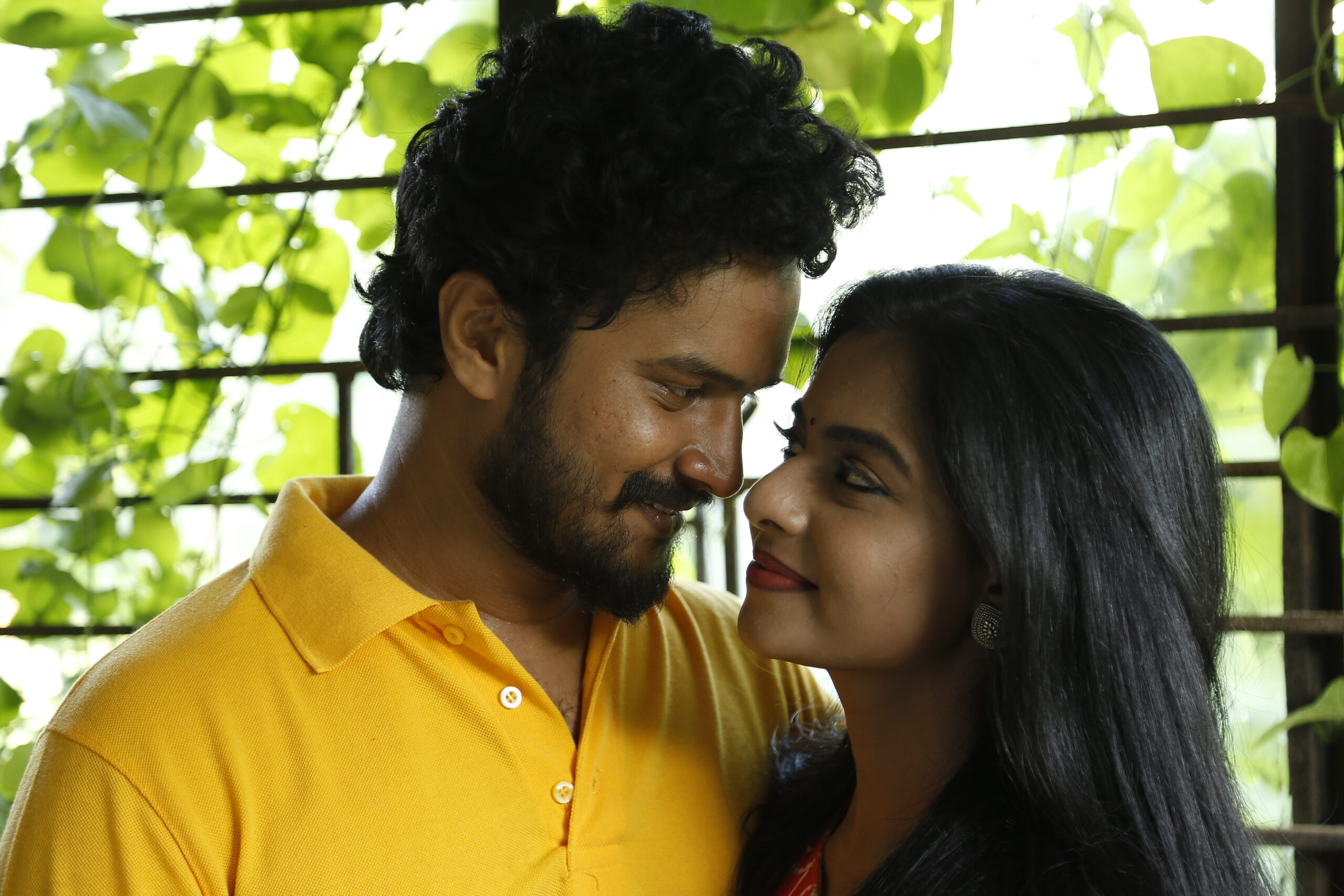Athiyan Athirai, the director of the next Pa. Ranjith production Irandam Ulagaporin Kadaisi Gundu, calls me ‘thozhar’ (the Tamil equivalent of ‘comrade’ that literally means friend, and is gender-neutral) through our 30-odd minute conversation. I find it endearing. It is a great icebreaker and establishes a sense of equanimity between us; something rare in a field that deals only in ‘sir’, ‘madam’, the now-ubiquitous ‘ji’ or my least favourite, ‘dear’. Yet, it is this quality of his – wanting to deal with people on equal terms and doing away with the hierarchy that is deeply rooted in a notoriously-feudal Tamil cinema industry – that drove him away from the movie business a decade ago.
Among the first things Athiyan talks about (when I ask him about his life) is that he believes in the philosophy of the left. And, he says this matter-of-factly, not dramatically or in a self-aggrandising manner, but with purpose, to establish why he could never fit into the traditional cinema space.
“I came to Chennai to work as an assistant director around 2008, and it was not for me,” he says, “I could not handle how people were expected to act slavish, while those higher up lorded over others. When a director comes in, you must stand up, say vanakkam, you must listen to everything he says. If he looks at a horse and says it’s a donkey, you must agree with him. None of this was for me.”
He also couldn’t get along with those whose politics wasn’t ‘strong’. “The kind of literature I read, the people I met and the life I led was far removed from the kind of cinema people here were making. So, I couldn’t really relate to or take part in anything during the discussions.” (‘Discussion’ is shorthand for the conversations a filmmaker has with his assistants or the crew, where he develops the story, talks about the craft, plot points, etc).
“I called one director ‘thozhar’ and was fired,” he says. “I was also terribly bored of the kind of stories they came up with. Someone loses an infant and finds it years later based on a mark or mole on the baby’s body…,” he laughs. “The atmosphere was just so fake and cinematic I couldn’t be there.” At this point, Athiyan decided cinema was not for him and left the industry for good. Or, so he thought.
***
Athiyan is from Villupuram in Tamil Nadu, and studied B.Sc Botany in Cuddalore, (literally the ‘sea town’), before making a radical switch to MA Tamil. “My grandfather Mayavan was a great storyteller. I would listen to his stories and then relay them to my friends, often forgetting some of the plot points, making up my own endings and ‘facts’. My friends would enjoy this a lot and I liked this feeling of telling 10 people a story and having them sit there thoroughly engrossed. It made me stand out from others.” He started dipping into his grandfather’s library to read, and that romance with books never really went away. Athiyan is also the author of two books of Tamil poetry – Yaaro Oruvan Yaaro Oruthikkaga (Some Man For Some Woman) and Appanin Kaigalal Adippavan (He Who Hits With His Father’s Hands).
After ‘leaving’ Tamil cinema, he worked in animation for a while doing 2D composition work, before taking on a job as a supervisor at a kailankadai (iron scrap store). “I would also carry the load and perform all the usual labour, transporting iron scrap etc,” he says. It was the most satisfying thing he’d done in a long time.
It was while working in this shop that he brought out his second poetry collection Appanin…. Pa. Ranjith, the director who’s now making waves across the nation for his cinema that marries art and ideology, ‘mass and class’ as we like to say in the South, read Athiyan’s second collection. Ranjith invited Athiyan to work with him on his first film Attakathi. “I politely declined because I did not want to be in competition once again in pledging myself to another human, which is what happens in usual film sets.”
When the movie released, however, Athiyan changed his mind and found himself yearning to go back to cinema. “I was filled with magizhchi (joy; the term now associated with Ranjith and one that Rajinikanth popularised in Kabali) when I saw Attakathi. I thought here are the stories I have heard, people I have seen in my life. Here, there’s love, life and celebration. It gave me confidence that I too could perhaps make movies.”
Athiyan called Ranjith. “He called me many times and I said no to working on Attakathi, but I called him after seeing it, wanting to work with him.” He assisted Ranjith in making Madras and Kabali.
Ranjith’s office, Athiyan says, was different from the kind of cinema offices he or his friends had worked in. How? “Every person is an equal there; there is no hierarchy among assistant directors and co-directors; any assistant can meet the director; equal pay; the same kind of good food for everyone; the same kind of room; you don’t stand up when he comes; you can call him ‘thozhar’; he will fight with us; we can fight with him; get mad at him. There was freedom there and love, so much of it. I was very happy when I was his assistant director. Only when I went out looking to direct on my own did I suffer. I could have learned cinema from anyone. What I learned from Ranjith and brought to my office was how to treat fellow artistes and technicians, how to be human and treat others as equals.”
Finally, Ranjith called him one day to listen to his story and decided to produce it himself. “Among Ranjith’s assistants, I am the first to make a movie. When he became my producer, I wanted him to be really satisfied with my film. I wanted him to say it’s a good movie; to say, ‘Here’s a boy who didn’t want to even make movies. I nagged and dragged him in and he’s made a great movie now’.”

726A3534
So, does Ranjith like the movie? “He hugged and kissed me when I showed him the film. ‘I am happy after a long time. As a director, you’ve come out ‘vera level’,’ he said. I don’t think I’ll ever forget that day.”
I sense that Athiyan is skeptical about revealing too much about the film, so we dance around the idea of the film for a while. “What are you trying to say with this film?” I ask. “Only Peranbu (per meaning big or grand, anbu meaning love or affection) will save you and me. Peranbu is the only thing that belongs to everyone. I believe in this philosophy.”
Coax him into telling a little more, and he says, “Well the title, there’s a hint there too. Mankind was fighting with stones, swords, guns and canons. Those wars were aimed at a few people or races. Today’s war is nuclear and has the potential to wipe out millions of people. Its effect will last hundreds of years. In the years forward, you cannot safeguard a nation by just having guns on the borders. What can make people secure? When you take care of the problems of the people inside the border. We must not also stand by and watch bombs being thrown at another country. Because the radiation and its effects can be so far-reaching. What’s safety then? To live without these bombs.” Irandam Ulaga Porin Kadaisi Gundu was shot across Chennai, Puducherry, Villupuram, Dindivanam, Melmaruvathur, Melmalayanur and Gingee.
***
I ask about the cast and crew, how he picked them, and he says, “Thozhar, I don’t see if people I want to work with are technically strong or what their body of work is like. What I see is how they treat and act around fellow humans. Cinema is teamwork. They should be able to honestly tell me what they think and feel, and vice versa. Otherwise, the work will just be disparate pillars, a collections of things. It will never blend to form one coherent unit.”
Poet Uma Devi has written three songs that Athiyan thinks will be really new to our cinema. “For instance, we have used therukoothu to talk about people’s problems and to not relay old ideas.” Tenma (of Casteless Collective fame) has composed the music.
Recommended
“The film’s hero is Dinesh (who also played the lead in Attakathi.) He has been really true to his role. He became the person he played. I think when he looks back on his career, he’ll say this movie did justice to his talent. Anandi’s role here is very different from what she played in Pariyerum Perumal.”
I ask him about women and their representation in our cinema, especially because he cares so deeply for equality, and there’s a sense of hope in his answer. “In the last six years, there’s been a rise in women-led films. When a woman makes a film about women, it will be so much more powerful. I am sure they are coming. Men’s bravado, feudalism and patriarchy is done and dusted. We are tired of listening to this. Over centuries, over generations, women have had stories heard from their grandmothers and great grandmothers. They are waiting with these stories. And, when they do start telling them, men will finally shut up.”

726A7569
The conversation veers back to the movie. Who else is there? “Riythvika too has played a very important role as has Muniskanth annan (brother). There will be humour from the beginning to the end, and he’s a big part of it. I don’t know what genre the film is, though. It’s like asking me what genre my life is, because I don’t know. I don’t laugh all day. My parents used to cut stones for a living. There was a lot of hardship. They would be bleeding sometimes. But they’d be telling a ‘double meaning’ story, making fun of others, making jokes, even adult ones, asking others to solve riddles. So there’s happiness there as well right? That’s how this film is. My characters sometimes laugh, sometimes run and hide. Sometimes, they sing. It’s like life itself.”



